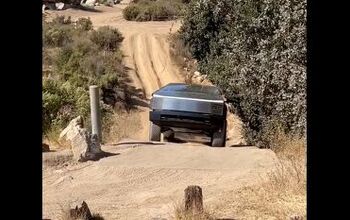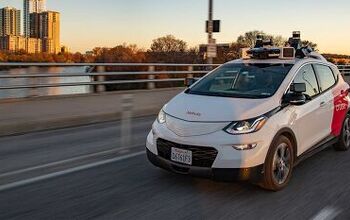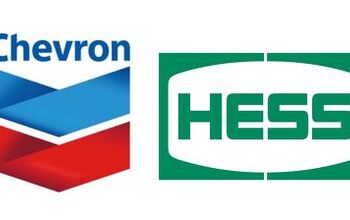What I Learned When I Published Two Opinion Pieces Regarding The UAW

.
Don’t let anybody tell you the economy’s tough nowadays; when our beloved, game-changing Managing Editor, Derek Kreindler, posted in a Facebook auto-journo group offering cash money to anybody willing to write a pro- or anti-UAW piece for this esteemed publication, only one of the several hundred members even bothered to contact him about it. I don’t know about you, and I don’t know about me, but the bacon-and-buffet junketeer crowd is doing just fine.
That anonymously-written piece stirred just as much passion as Mr. Kitman’s contribution, and for a reason; I decided that we would permit just as much wacky button-punching as the pro-UAW opinion had offered. I was chagrined to see that some of the readers referred to it as “racist”. After all, the characterization of Japanese “overlords” in the piece was a deliberate spoof of the deliberately racist and violence-inducing material distributed by the UAW in the Eighties. That material, and the race-baiting tactics employed by the UAW in that decade, arguably led directly to the death of an American citizen at the hands of a Chrysler supervisor and a laid-off Chrysler autoworker in June of 1982. I’m not too stressed about it. This is the Internet, which means that some people read deeply, some people read quickly, and some people read until they see something about which they feel entitled to complain.
So what did we learn from the pieces themselves? Obviously, the answer is Nothing, and if you expected anything else, you’re being silly. Reading one piece by a Manhattan lawyer, and one by a former Honda quasi-employee, and expecting to learn something about the Tennessee situation from either would be roughly equivalent to expecting to learn something about mental illness by listening to W. Axl Rose perform “You’re Crazy”. These are opinion pieces. They are meant to stir discussion and debate.
Which leads to the question: Should we have put “boots on the ground” down there in Chattanooga? Should we have syndicated the content of a local newspaperman, as was suggested? Perhaps we should have, and if this struggle continues perhaps we’ll point Derek’s Aventador south and see what’s happening for ourselves. Arguably, this is the story of the year so far, considerably more important than any of the relatively dismal debuts at Detroit and Chicago. If you want a local opinion and you’re willing to click and read it, let us know in the comments.
What did we learn from the reader response to the posts? That’s a different question. Strictly speaking, the “Anonymous” post was viewed 23% more often than the Kitman post despite being published hours afterwards. It caught up with its “competition” by six PM and never looked back. Given that we paid Mr. Kitman more for his opinion than we paid our hapless, white-polyester-clad assembly-line scrub, that’s disappointing. It suggests that the “name value” of major autojournos is less than zero, a lesson that was learned long ago by the OEMs who are courting the Jen Friels and mommybloggers of the world with Kimpton-and-Ritz-Carlton-level awe-and-awe tactics even as they cut PR budgets on the whole.
It’s not that simple, however. More readers commented on the Kitman article, and ten times as many chose to share it on Facebook with their friends. What does that mean? Does it meant that the pro-UAW piece was more convincing, better-written, more worthy of sharing? Or does it mean that left-leaning readers, who stereotypically value social cohesion and reinforcement of existing opinions more than their counterparts across the aisle, are simply more likely to share this sort of thing? Reading the comments doesn’t clarify matters; the B&B were merciless in their destruction of both the pieces. And when the clicks were counted, neither Mr. Kitman nor Mr. Anonymous managed to ring the bell as hard as a description of two rather unremarkable white Ohioans taking delivery of Ohio’s favorite car.
That’s a shame, because it’s a lot more expensive to buy an Accord than it is to buy a journalist. We can’t do it as often, either.
What’s next for the UAW story? Well, that’s the exciting part: nobody really knows. This is a business where the story is written and handed out in advance, where journalists compete desperately for the favor and attention of the OEMs who treat us all as children to be indulged or punished as the situation merits. This isn’t that. It’s a story that has ramifications and meaning well beyond the VW Passat or the Chattanooga plant or even the UAW itself. It’s subject to change, it’s going to get messy, there will be blood. This story takes place in a world where every dollar, every penny, matters. To Volkswagen, to the workers, to the union, to the customer, to the dealer, to everyone. I think we’ll keep an eye on it. Watch this space.

More by Jack Baruth
Latest Car Reviews
Read moreLatest Product Reviews
Read moreRecent Comments
- Lichtronamo Watch as the non-us based automakers shift more production to Mexico in the future.
- 28-Cars-Later " Electrek recently dug around in Tesla’s online parts catalog and found that the windshield costs a whopping $1,900 to replace.To be fair, that’s around what a Mercedes S-Class or Rivian windshield costs, but the Tesla’s glass is unique because of its shape. It’s also worth noting that most insurance plans have glass replacement options that can make the repair a low- or zero-cost issue. "Now I understand why my insurance is so high despite no claims for years and about 7,500 annual miles between three cars.
- AMcA My theory is that that when the Big 3 gave away the store to the UAW in the last contract, there was a side deal in which the UAW promised to go after the non-organized transplant plants. Even the UAW understands that if the wage differential gets too high it's gonna kill the golden goose.
- MKizzy Why else does range matter? Because in the EV advocate's dream scenario of a post-ICE future, the average multi-car household will find itself with more EVs in their garages and driveways than places to plug them in or the capacity to charge then all at once without significant electrical upgrades. Unless each vehicle has enough range to allow for multiple days without plugging in, fighting over charging access in multi-EV households will be right up there with finances for causes of domestic strife.
- 28-Cars-Later WSJ blurb in Think or Swim:Workers at Volkswagen's Tennessee factory voted to join the United Auto Workers, marking a historic win for the 89- year-old union that is seeking to expand where it has struggled before, with foreign-owned factories in the South.The vote is a breakthrough for the UAW, whose membership has shrunk by about three-quarters since the 1970s, to less than 400,000 workers last year.UAW leaders have hitched their growth ambitions to organizing nonunion auto factories, many of which are in southern states where the Detroit-based labor group has failed several times and antiunion sentiment abounds."People are ready for change," said Kelcey Smith, 48, who has worked in the VW plant's paint shop for about a year, after leaving his job at an Amazon.com warehouse in town. "We look forward to making history and bringing change throughout the entire South." ...Start the clock on a Chattanooga shutdown.


































Comments
Join the conversation
The two pieces were not presented equally at all on the front page. By posting the 2nd so soon after the first, I imagine the vast majority of visitors has to scroll past the 2nd to see the first. Thus, those who didn't devote as much time on the site, missed the first.
"who stereotypically value social cohesion" I hate to pick nits, but you misspelled coersion